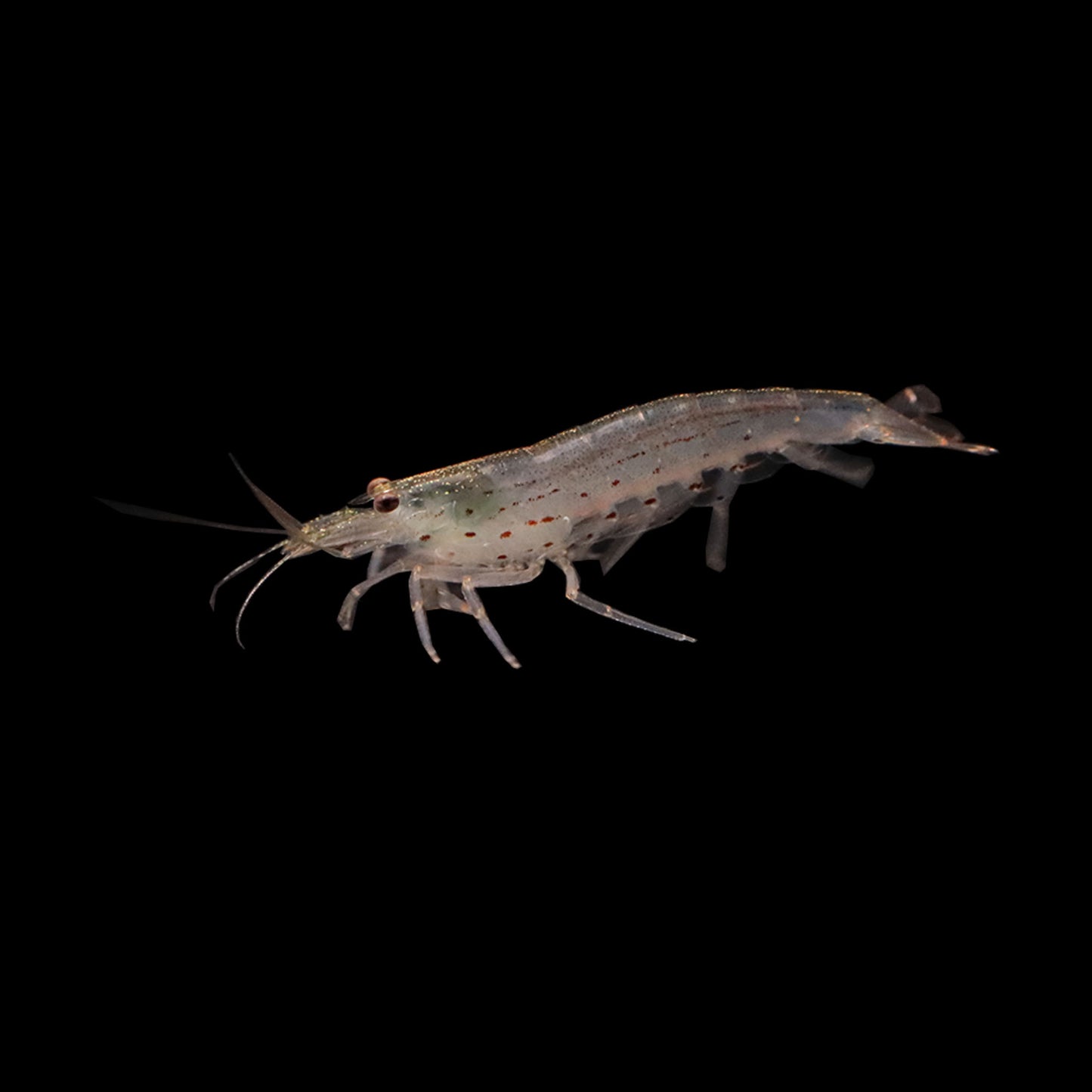AQUARIUM ARTS
Amano Shrimp (Caridina multidentata)
Amano Shrimp (Caridina multidentata)
Couldn't load pickup availability
Description: The Amano Shrimp is a popular freshwater invertebrate known for its algae-eating capabilities and peaceful demeanor. It has a translucent body with a series of small, dark spots along its sides and can vary in size depending on age and diet.
Size: Up to 2 inches (5 cm)
Aquarium Size: A minimum of 10 gallons is recommended for a small group of Amano Shrimp.
Water Parameters:
-
Temperature: 70°F to 78°F (21°C to 26°C)
-
pH: 6.5 to 7.5
-
Hardness: Soft to moderate
Temperament: Amano Shrimp are peaceful community invertebrates. They are best kept with other non-aggressive tankmates and do well in a calm setup.
Group Size: Amano Shrimp thrive in groups of 5 or more. Keeping them in groups helps reduce stress and encourages natural behaviors.
Compatibility: Amano Shrimp can be kept with small, peaceful fish such as tetras, rasboras, and corydoras catfish. They should not be housed with larger predatory fish that may see them as prey.
Diet: Omnivorous. Amano Shrimp are exceptional algae eaters and can also be fed blanched vegetables, algae wafers, and shrimp pellets.
Care Level: Beginner to Intermediate. They are hardy but require stable water parameters for long-term health.
Planted Aquarium: Amano Shrimp are ideal for planted aquariums. They help control algae and contribute to the overall health of the ecosystem without damaging plants.
Invertebrate Compatibility: Amano Shrimp are highly compatible with other peaceful invertebrates such as snails and dwarf shrimp species.
Lid Recommendation: A lid is recommended for the aquarium to prevent Amano Shrimp from climbing out, as they are known to occasionally escape open tanks.
Additional Notes: Amano Shrimp are excellent for algae control but do not breed successfully in freshwater, as their larvae require brackish water to develop.
Disclaimer: Aquarium Arts cannot guarantee compatibility with your current fish or the fish you buy and cannot be held liable for fish lost due to aggression.
Share


